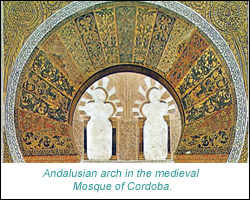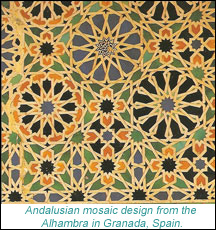![]()
The Spirit We Need
by David M. Denny
If you missed President Obama’s Cairo speech on June 4, you owe
it to yourself to read the text
or better yet, watch it on YouTube.
But if you haven’t the time, here is my own brief response. He began by acknowledging that “We meet at a time of tension between the United States and Muslims around the world.” He expressed his desire to “seek a new beginning” by saying “openly the things we hold in our hearts.” The president called for “a sustained effort to listen to each other; to learn from each other; to respect one another; and to seek common ground.” After this hopeful beginning, he addressed seven areas of tension: violent extremism, the situation between Israelis, Palestinians and the Arab world, nuclear weapons, democracy, religious freedom, women’s rights, and economic development and opportunity.
“Throughout history, Islam has demonstrated through words and deeds the possibilities of religious tolerance and racial equality.”
 It
is refreshing to have a president who has “known Islam on three
continents” and can say “I am a Christian, but my father came
from a Kenyan family that includes generations of Muslims.” It is
refreshing to have a president who appreciates that Morocco was the first
country to acknowledge the United States. It is refreshing to have a president
who has some grasp of world history. Some bloggers took issue with the
president’s recitation of Muslim contributions to world civilization,
but whether or not Muslims invented pens or compasses, few dispute that
the Muslim civilization that developed in medieval Spain was anything
less than magnificent. “Islam has a proud tradition of tolerance.
We see it in the history of Andalusia and Cordoba,” he said. He
erroneously claimed that this culture arose during the Inquisition, but
this does not detract from his claim that “that is the spirit we
need today,” a spirit that historian Américo Castro called
convivencia.
It
is refreshing to have a president who has “known Islam on three
continents” and can say “I am a Christian, but my father came
from a Kenyan family that includes generations of Muslims.” It is
refreshing to have a president who appreciates that Morocco was the first
country to acknowledge the United States. It is refreshing to have a president
who has some grasp of world history. Some bloggers took issue with the
president’s recitation of Muslim contributions to world civilization,
but whether or not Muslims invented pens or compasses, few dispute that
the Muslim civilization that developed in medieval Spain was anything
less than magnificent. “Islam has a proud tradition of tolerance.
We see it in the history of Andalusia and Cordoba,” he said. He
erroneously claimed that this culture arose during the Inquisition, but
this does not detract from his claim that “that is the spirit we
need today,” a spirit that historian Américo Castro called
convivencia.
“Islam is a part of America. And I believe that America holds within her the truth that regardless of race, religion, or station in life, all of us share common aspirations—to live in peace and security; to get an education and to work with dignity; to love our families, ourcommunities, and our God.”
Four aspects of the talk struck me deeply: his references to fear, his demeanor, his emphasis on cultural exchange, and his use of scripture. He spoke about the fear and anger Americans felt after 9/11. But rather than stoking a sense of fear, he took this occasion to say that this fear “led us to act contrary to our ideals.” Whereas his predecessor emphasized the realism of fear and the importance of making war on terror, President Obama imagined a future beyond fear,
"...the day when the mothers of Israelis and Palestinians can see their children grow up without fear; when the Holy Land of three great faiths is the place of peace that God intended it to be; when Jerusalem is a secure and lasting home for Jews and Christians and Muslims, and a place for all of the children of Abraham to mingle peacefully together as in the story of Isra, when Moses, Jesus, and Mohammed (peace be upon them) joined in prayer."
He made a special appeal to young people to move beyond fear and mistrust. He acknowledged the deep fear many feel about a loss of identity as a result of changing their attitudes toward other nations and religions. He acknowledged past injuries between Jews, Christians and Muslims. “But if we choose to be bound by the past, we will never move forward. And I want to particularly say this to young people of every faith, in every country–you, more than anyone, have the ability to remake this world.”
As for the president’s demeanor, I thought about how he is called “no drama Obama.” But my impression of his Cairo speech was of “post-drama Obama.” That is, he conveys a kind of authority and calm conviction that comes after careful reflection and serious wrestling with daunting complexities.
 What
struck close to home for me, and I imagine for many of our Desert Foundation
circle of friends, was the president’s emphasis on education. “We
will expand exchange programs, and increase scholarships, like the one
that brought my father to America, while encouraging more Americans to
study in Muslim communities.” Such an exchange program, which sent
me to Afghanistan at the age of seventeen, changed my life forever, and
led me to help found a non-profit dedicated to exploring the wisdom of
the world’s deserts with a special focus on peace and reconciliation
between the three Abrahamic traditions that grow out of the desert.
What
struck close to home for me, and I imagine for many of our Desert Foundation
circle of friends, was the president’s emphasis on education. “We
will expand exchange programs, and increase scholarships, like the one
that brought my father to America, while encouraging more Americans to
study in Muslim communities.” Such an exchange program, which sent
me to Afghanistan at the age of seventeen, changed my life forever, and
led me to help found a non-profit dedicated to exploring the wisdom of
the world’s deserts with a special focus on peace and reconciliation
between the three Abrahamic traditions that grow out of the desert.
“The Holy Qur’an teaches that whoever kills an innocent, it is as if he has killed all mankind; and whoever saves a person, it is as if he has saved all mankind.”
Finally, it was thrilling for me, a one-time student of Arabic, to hear the president greet his Egyptian hosts in Arabic, and then to hear him quote from the Talmud, the Qur’an, and the New Testament. Each time he referred to or quoted the Qur’an, the audience burst into loud applause. President Obama concluded by emphasizing that each of our Abrahamic traditions focuses on coming to know each other in peace. “We know that is God’s vision,” he said. “Now, that must be our work here on Earth.”
I agree with the president that the spirit of Andalusia is “the spirit we need today.” But that was not a utopian spirit. The volatilities of medieval Spain included persecutions and prejudice. In fact, we need to improve upon the spirit of convivencia. I hope and pray that Jews, Christians, and Muslims can help each other develop a “sacred ecology” of communion that allows each community to fulfill its identity and destiny not at the expense of the others, but in a symbiosis that allows each to flourish not in spite of but because of our cross-fertilizing humility and wisdom. Having heard the president’s Cairo message, I have increased hope that the face of America may have begun to shift in the eyes of the Muslim world. But “our work here on Earth,” our peacemaking, will demand the contributions of many faces and hands over generations.
If you, your neighborhood, synagogue, church, mosque or community organization has taken steps toward making the “new beginning … based on mutual interest and mutual respect” the president called for, let us know. We want to share your experience and action with others through this web site.